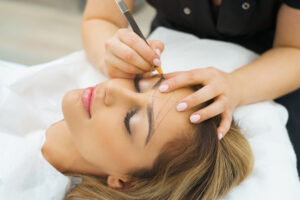Why is My Microblading Not Working

Troubleshooting Microblading: Why Your Procedure May Not Be Working
If you’ve recently undergone microblading and are not seeing the expected results, you may be wondering why. Let’s explore some common reasons why microblading may not be working as expected and what steps you can take to address the issue.
Understanding Microblading
Microblading is a popular semi-permanent makeup technique used to enhance eyebrows by depositing pigment into the skin. While it’s generally a safe and effective procedure, several factors can affect the outcome.
Inexperienced Technician
One of the most common reasons for unsatisfactory microblading results is an inexperienced technician. Microblading requires skill and precision, and if the technician lacks sufficient training or expertise, the results may be subpar.
Skin Type and Condition
Another factor that can impact the success of microblading is the client’s skin type and condition. Oily skin, for example, may not hold pigment as well as dry or normal skin. Additionally, certain skin conditions such as eczema or psoriasis may interfere with the healing process and affect the final result.
Poor Aftercare
Proper aftercare is crucial for the success of microblading. Failure to follow the technician’s instructions, such as avoiding excessive sweating or sun exposure, can lead to pigment fading or uneven healing.
Allergic Reaction
In rare cases, clients may experience an allergic reaction to the pigments used in microblading. Symptoms may include redness, swelling, or itching. If you suspect an allergic reaction, consult with your technician or a healthcare professional for further guidance.
How to Address the Issue
If you’re unhappy with your microblading results, there are steps you can take to address the issue. First, schedule a follow-up appointment with your technician to discuss your concerns. They may be able to touch up or adjust the pigment to achieve the desired outcome.
If you believe the issue is due to an inexperienced technician or poor quality pigments, consider seeking a second opinion from a reputable microblading specialist.
Conclusion
Microblading can be a transformative procedure, but it’s essential to understand that results may vary based on individual factors. By addressing common issues such as inexperienced technicians, poor aftercare, or allergic reactions, you can increase the likelihood of achieving satisfactory results. Remember to communicate openly with your technician and follow their aftercare instructions diligently for the best outcome.
Microblading, Permanent Makeup
Book Your Appointment at Aesthetic Skins

